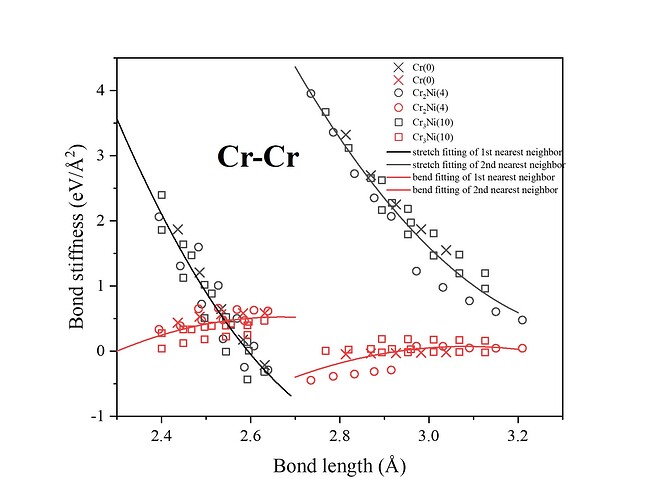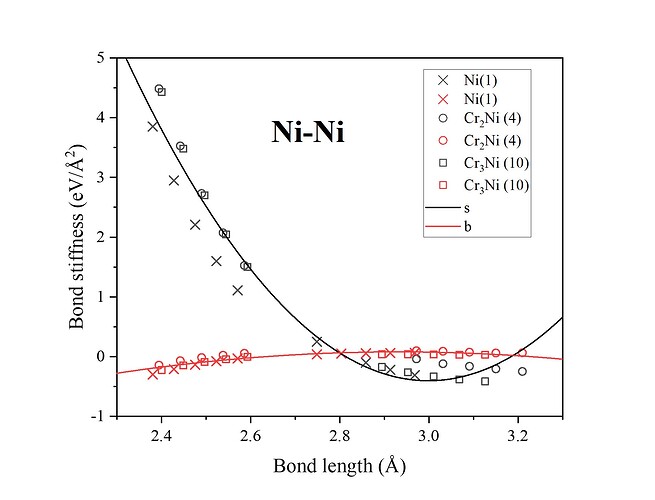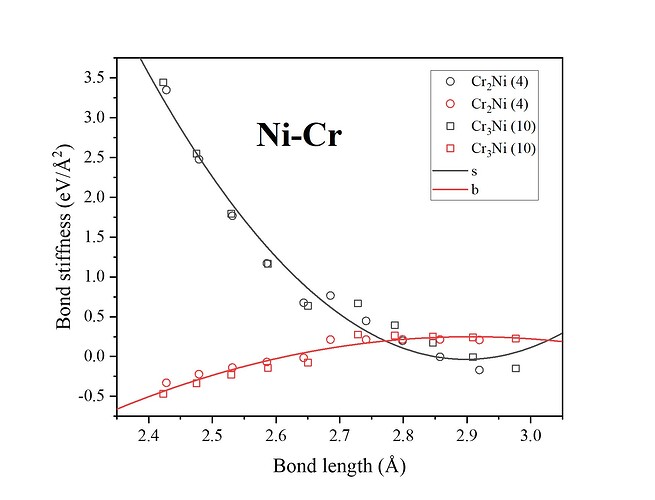Dear ATAT staff,
This e-mail is to consult a question about the svsl code and slspring.out file in the ATAT software.
Recently I met a problem. I have been working on predicting the Ni-Cr phase diagram considering both configurational and vibrational contributions using ATAT software.
I plan to build a “slspring.out” file to determine bond stiffness vs bond length relationship for Cr-Cr, Ni-Ni and Ni-Cr. However, as shown in Figure 1 (Cr-Cr bond), Figure 2 (Ni-Ni bond) and Figure 3 (Ni-Cr bond), the Cr-Cr bond cannot be described by one formula over the entire bond length range. For example, in stretching terms, two formulas are required to describe the relationship for the 1st nearest neighbor (distance from 2.3 to 2.7 Å) and the 2nd nearest neighbor (distance from 2.7 to 3.2 Å), respectively. A similarly situation occurs for bending terms. This means that slspring.out file should be described as follows:
Cr Cr
distance 2.3 2.7
3
107.8855
-74.8151
12.80867
3
-27.04666
20.66945
-3.87397
Cr Cr
distance 2.7 3.2
3
97.46795
-57.21419
8.41874
3
-30.50464
19.83809
-3.21768
Cr Ni
3
121.26286
-83.69732
14.43804
3
-24.62811
17.12396
-2.94683
Ni Ni
3
105.09173
-70.35471
11.72982
3
-7.64784
5.27165
-0.89915
However, in the ATAT software, the svsl code cannot read two fitting formulas in slspring.out file. Could you please provide some suggestions on how to define two formulas to describe different bond distance ranges?
I have attempted to modify the svsl.cpp source file and rebuild a new svsl executable that can handle two bond-distance regions, but unfortunately, I was not successful.
Do you have an updated version of the code or any recommended approach to address this issue?
Thank you very much for your time and help.
Best regards,
Chenying


